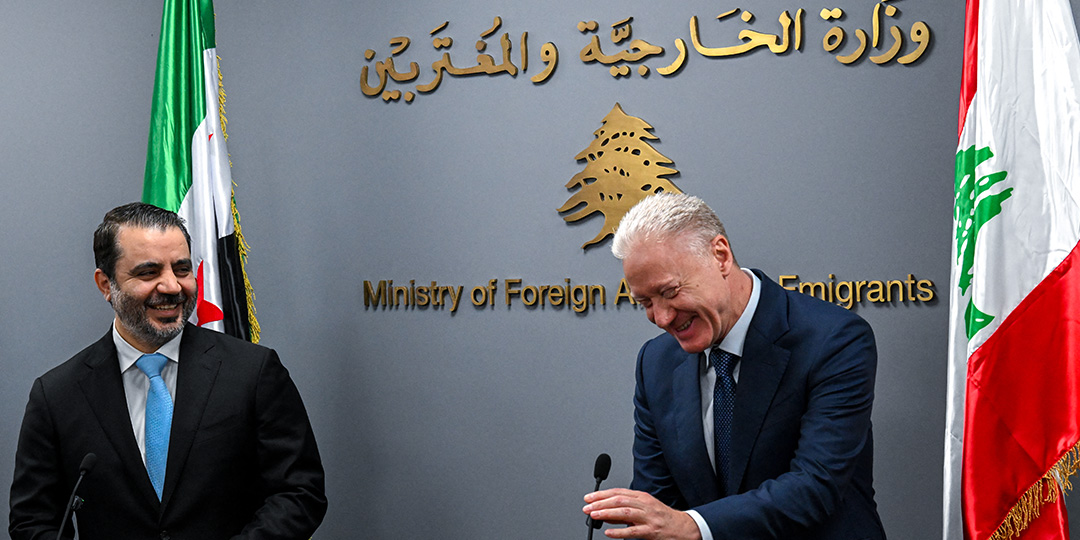Lebanon and Syria on Friday committed to turning a new page on ties as Damascus’s foreign minister visited Beirut, with Lebanon seeking information on political assassinations under the Assad dynasty.
The family of Bashar al-Assad, ousted in December, exercised control over Lebanese affairs for decades and was accused of assassinating numerous officials in Lebanon who expressed opposition to its rule.
“Today we have opened a bright new page in relations between Syria and Lebanon,” said Foreign Minister Asaad al-Shaibani, the first senior Syrian official to visit Lebanon since Assad’s toppling.
He said the trip demonstrated “a new Syrian approach towards Lebanon”, involving respect for its sovereignty and non-interference in its internal affairs.
President Joseph Aoun said Lebanon looked forward to strengthening ties between the two countries “on the basis of mutual respect and non-interference in domestic affairs”.
A key issue is the fate of Syrian detainees in Lebanese prisons, Shaibani said, adding that “we have made significant progress on this issue”.
Some 2,250 Syrians are held in Lebanese jails, around a third of the total prison population, a judicial official told AFP.
The official added that around 700 met the conditions for extradition, but noted that the matter required a new accord between the two countries.
Lebanese Justice Minister Adel Nassar told AFP that Lebanon has “requested all the information available to the Syrian side on the assassinations that took place in Lebanon” under the Assads, including that of former prime minister Rafic Hariri.
He said Syria had shown cooperation on the issue, adding that Beirut had also requested information on thousands of Lebanese who went missing in Syria under the Assad family’s iron-fisted rule.
– Refugees –
Hundreds of Syrian prisoners, accused of “terrorism” or related offences including attacks on Lebanese forces, have been brought before Lebanon’s military courts.
Others are held for alleged membership in jihadist or armed groups that were opposed to Assad, while some are still awaiting trial.
Shaibani’s meetings also addressed issues including encouraging refugees to return home and fighting smuggling by securing the porous, 330-kilometre (205-mile) shared border.
Lebanon has long hosted more than a million Syrians who fled their country’s civil war, though the United Nations refugee agency says more than 294,000 have returned home this year.
Shaibani said “there are plans that we are discussing now, with international support, for the dignified and stable return” of refugees, noting the issue would be resolved gradually.
Lebanon’s current leaders took office this year following a devastating war between Israel and Hezbollah that left the militant group badly weakened after years of political dominance.
Hezbollah, which fought alongside Syrian government forces during the country’s civil war from 2011, lost a major ally and cross-border supply route with Assad’s ouster.
Lebanon’s government has tasked the army with disarming Hezbollah, the only armed group that refused to hand over its weapons following the Lebanese civil war.
Syria became the dominant power in Lebanon after former president Hafez al-Assad intervened in its 1975-1990 civil war.
His son Bashar only withdrew troops in 2005 following mass protests triggered by the killing of Hariri, blamed on Assad and Hezbollah.
In December, Sharaa said his country would not interfere in Lebanon and would respect its neighbour’s sovereignty.
bur-lg/jsa
© Agence France-Presse








